
Why Are Thoughtful Weed Killers Important for Our Planet’s Future?
March 6, 2021Weed killing chemicals were previously praised for overcoming agricultural difficulties and shortages. Herbicides were known as the technological answer to combating weeds that impeded a healthy and productive crop. Herbicides increased crop yields by weeding out unwanted plants and keeping the soil fertile and thus leading to more vigorous, potent plants.
However, these artificial products come with a downside. They threaten the surroundings and the very future of our food output. Chemical fertilizers and pesticides poison our waters, our lands, other living creatures, and our own bodies. Their efficacy is boosted by big-budget, corporate-driven advertising, and marketing plans. Why should we risk our planet’s future if healthier and more effective and safe and best weed killer and other gardening solutions exist?
Some might be curious to know if organic foods have pesticides? The answer is yes, but their source is organic, sparing all the toxic and synthetic elements of the substance. Thoughtful pesticides are far less dangerous for the ecosystem, and for us humans.
Organic vs. Traditional agriculture

We are going to explore the relative effects of organic vs. conventional agriculture in this post. But before that, it’s worth clarifying their definitions. Organic agriculture refers to the farming of plants or livestock with no application of synthetic inputs, such as:
- Artificial fertilizers
- Pesticides
- Plant growth regulators
- Nanomaterials
- Genetically-modified organisms (GMOs)
Traditional or industrial farming is an agricultural system that uses one or more of those above synthetic input signals.
Environmental Damage Associated With Chemical Pesticides
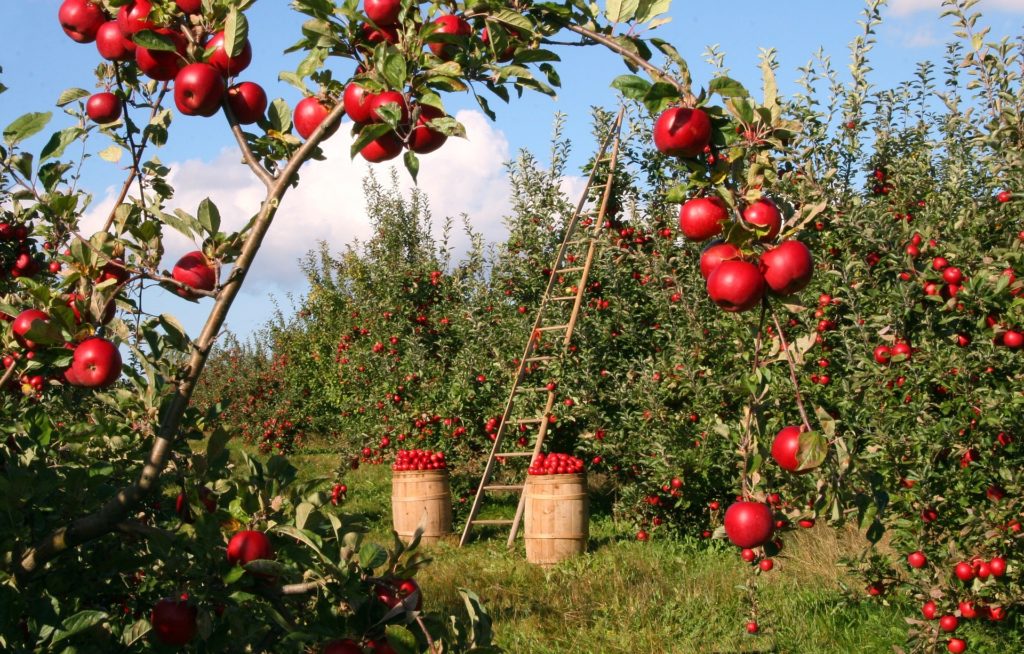
A weed killer sprayer is typically used on lands. But that doesn’t mean that they cannot make their way to a water source located nearby. For example, pesticides in an orchid may end up in a nearby stream due to a runoff problem. These weed control agents can last a long time in the environment. If the water becomes polluted with chemicals, most fish and other living creatures might perish and become sick. This can throw the whole ecosystem off balance.
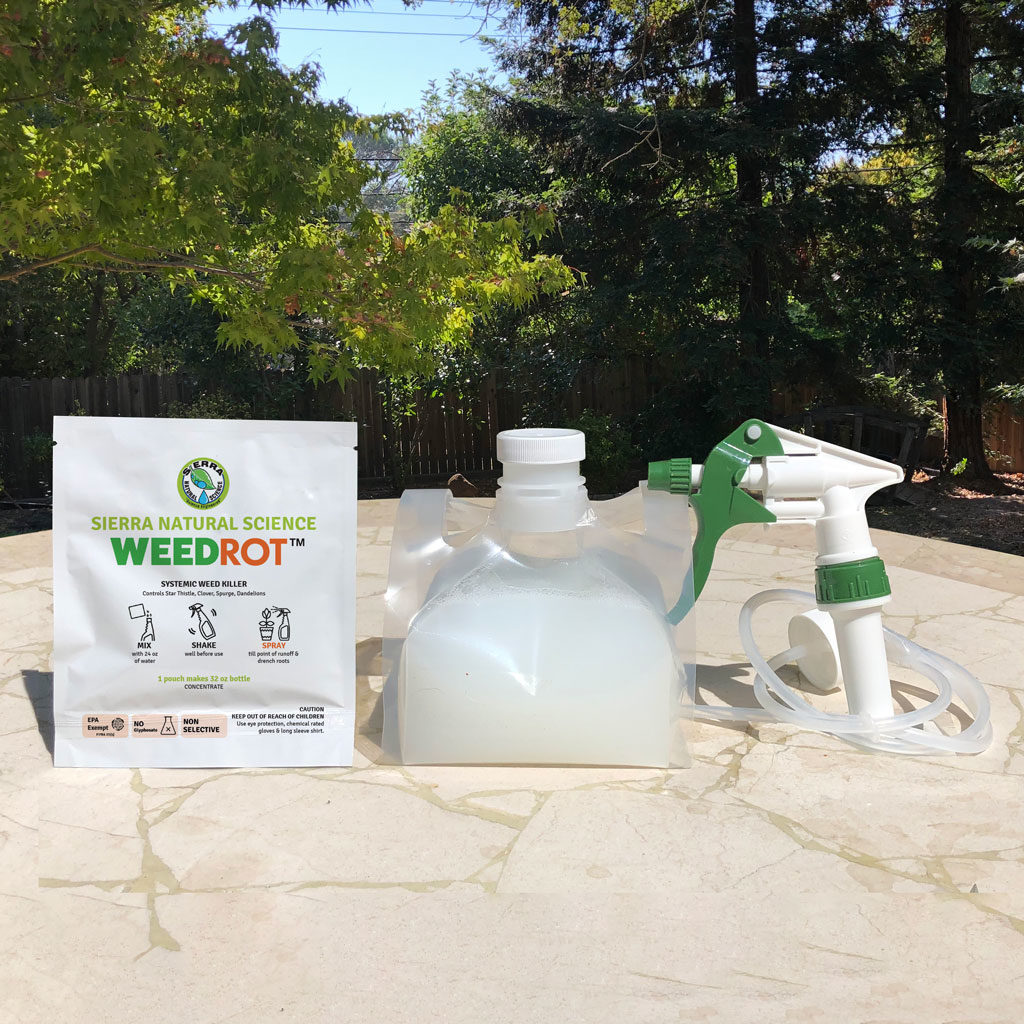
Weed Killer Pouch & Collapsible Sprayer
Stops weeds from taking in nutrients, causing them to dry out
Pesticides may also affect groundwater by a process known as leeching. Many people depend on groundwater for their drinking supply. Yet, if this water contains pesticides in it, it is unsanitary and harmful for the people to drink.
Pesticides could also disperse and cause potential harm by a phenomenon known as volatilization. Volatilization happens every time a pesticide turns into a gas or vapor after it’s been sprayed, allowing it to travel through the atmosphere and disperse to different areas of your land. This could be harmful to wildlife, such as frogs. Some scientists even believe that atrazine causes reproductive issues that affect the frog’s ability to live and reproduce.
The mystery of Disappearing Honey Bees
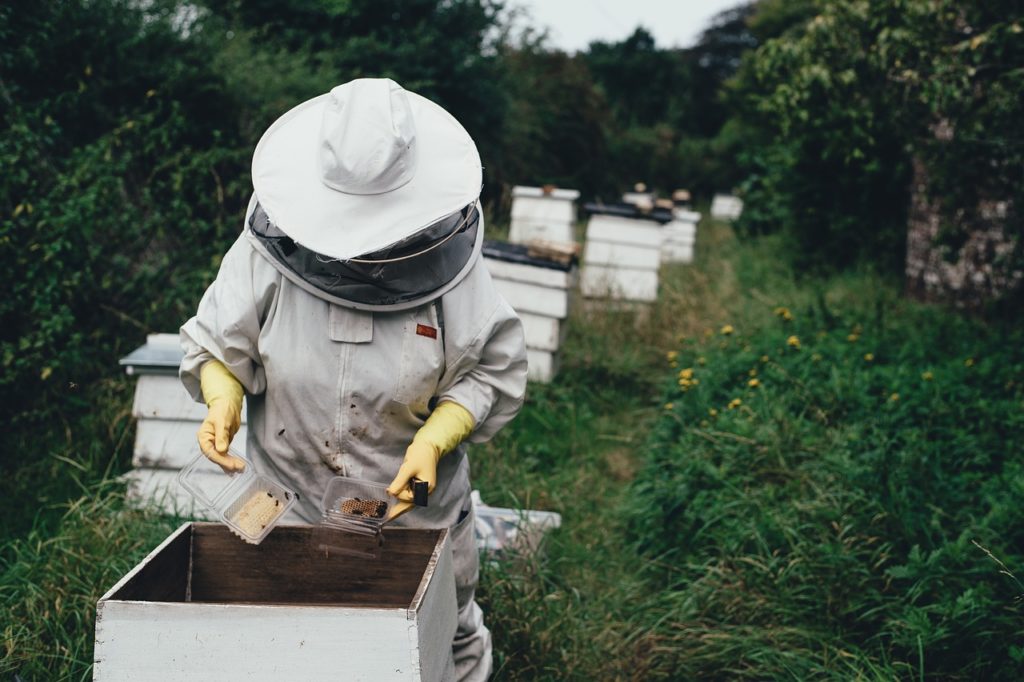
Bees are indirectly responsible for producing honey, but also almonds, peaches, and chocolate. Almost 1/3 of the food we eat depends on bees for pollination. Insects suddenly started dying and abandoning their hives in 2006. American Boffins, beekeepers, and farmers were very much alarmed by this. It has been named the Colony Collapse Disorder, of which the toxicity of chemical pesticides is the primary cause.
As scientists unravel this mystery, they are discovering that vulnerability to pesticides is perhaps acting in synergy with different stressors is a prime suspect. These insecticides are extremely toxic to bees. That’s why its best to spray weed killer at night, when insects and bees are sleeping and away from crops. It can minimize damage to precious honey bees. You can learn more about when to apply weed killer here.
Male Tadpoles Transform Into Females After Living in Contaminated Water
There is a weedkiller that might change a frog’s biological sex. Its main manufacturer, Syngenta, calls it Aatrex. It’s popularly known as Atrazine. More than 75 million pounds of the herbicide are applied to U.S. farms every year, making it the second-largest pesticide. Scientists found that male tadpoles turn into female frogs. It contaminates the majority of water supplies in the American Midwest.
Fouled Waterways Endanger Fish and Birds
Some pesticides float through the ground into water. Rain has washed many others to nearby water sources such as creeks, rivers, and lakes. There, the pesticides can poison fish and other aquatic creatures. The resulting contamination can last for weeks, months, or even decades.
In California, pesticides used on lawns integrate aquatic food chains, which is greatly upsetting the local ecosystems. Endosulfan run-off from tomato fields threatens the small fish which feed ibises, storks, and egrets.
Why Are Pesticides So Bad for People’s Health?
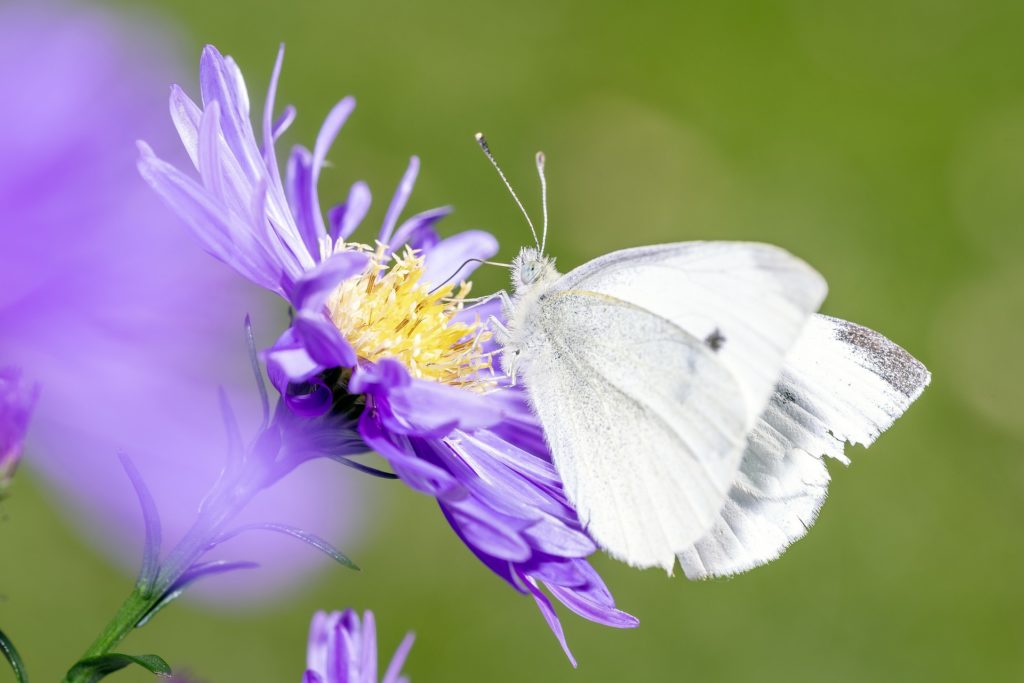
Pesticides aren’t only dangerous to the environment, they’re also poisonous to our health. Pesticides are stored in the colon. From there, they slowly poison our whole system. You might notice it straight away, but whenever you’re eating a non-organic apple, you are also eating over 30 unique pesticides. Even when washed, there are many toxic chemicals spilled onto it. The number of pesticides could be your highest on the following fruits or vegetables:
- Strawberries
- Oranges
- Celery
- Carrots
- Spinach
- Grapes
- Apples
- Cucumbers
After countless studies, pesticides have been shown to be linked to cancer, Alzheimer’s, and even some birth defects. They also can harm the nervous, reproductive, and endocrine systems. Chemical herbicides are even said to be inherently harmful to fetuses. The mother can transmit their compounds while she is pregnant.
Although one piece of fresh fruit with some liquid weed killer won’t kill you, if the chemicals build up in your body, they can be potentially harmful to your quality of life.
The Ecological Impact of the Planet’s Most Famous Weed Killer: Roundup
Weed killers are sprayed to regulate property weeds on agricultural areas, residential lawns, and golf courses. They are also sprayed on water bodies to regulate aquatic algae. Among these weed killers is a herbicide known as glyphosate.
The Environmental Protection Agency (EPA) carried out an environmental assessment of glyphosate. It’s the active ingredient in RoundUp and the entire world’s most heavily used agrochemical industry to poison weeds.
Glyphosate acts by interfering with an enzyme that’s essential to produce vital proteins. This contributes to cell death in plants. Some plants are meant to be glyphosate-resistant. This means that the enzyme has been modified, and the weed-killing substance can’t act on it. Among the number of toxic effects are lethality and decreased expansion.
The EPA assessed the effect of glyphosate on several living organisms, including humans. The substance praying can give rise to a chemical to drift and move off-site. Many neighboring species are highly exposed. Contact with glyphosate can occur as:
- It touches your skin
- After you eat infested plants
- When you inhale vapors of the product
Pesticide regulations in the United States
Weed killers are threatening biodiversity and interrupting the natural ecosystems upon which our very survival depends. Environmental organizations work hard to promote agricultural systems that protect the planet instead of contaminating it.
In the US, maximum limits of allowable concentrations for individual pesticides in drinking water have been determined by the Environmental Protection Agency (EPA) for public water systems.
Ambient water quality standards for pesticide concentrations in water bodies are mainly manufactured by state environmental agencies, together with EPA oversight.
Thoughtful Weed Control Products Are Now Accessible To All

You will find more organic products available on the market as demand increases alongside genuine efforts to get more thoughtful alternatives to conventional weed control.
Non-selective and household products can be used as herbicides. They can comprise such plant-derived concentrates as jojoba oil and lactic acid or acetic acid (vinegar). They somewhat as effective as their chemical counterparts, and far less hazardous to people, pets, and our planet. They can be a great alternative to using glyphosate-based herbicides, such as RoundUp. You can check the specific weed killer reviews to learn more about the different products and other things such as the best time to spray weeds.
Not all chemical weed killers have their thoughtful garden alternatives yet, but science is advancing rapidly. Some products are really powerful, whether you intend on killing large patches of weeds or only small infested areas. They can even target broadleaf weeds while leaving grass plants unaffected.
Benefits of Utilizing a Thoughtfully Designed Herbicide
A good deal of farmers choose to use organic, more thoughtful procedures for weed control rather than harsh, toxic chemicals that can damage the surrounding plants and maybe even contaminate groundwater. You can even get a thoughtful weed killer that won’t kill flowers. Using a thoughtful weed killer can be a greater choice for the family members, especially if you have pets or young kids.
Chemical substances differentiate themselves from thoughtful ones in that the latter doesn’t use glyphosate. Thoughtful weed killers don’t stink as conventional pesticides do. They are mostly derived from powerful and gentle smelling essential oils. In this case, a weed killer for flower beds will smell almost as nice as the flowers themselves.
Another great thing about a thoughtful weed killer for lawns is that you don’t have to wait for days before being able to enter your sprayed yard. That is great when you have kids or pets who want to spend some time roaming around the yard. If you get the best weed killer spray, you may even re-plant in the area pretty fast, too.
Best Thoughtful Weed Management Products on the Market: Sierra Natural Science
Environmental concerns continue to rise. There are lots of people rethinking how they address many ecological and health-related issues. In both the agriculture and garden care industries, the over-use of toxic pesticides is now under careful inspection. Several industrial companies have stepped up and are producing thoughtful weed control solutions. Sierra Natural Science is at the forefront of this movement.
When it comes to controlling diseases and insects, thoughtful weed control products allow you to safely nurture your plants and yard while not harming the environment with the use of toxic and synthetic chemicals.
Sierra Natural Science has been nominated a few times to the top ten list of safest weed control solutions. It’s an efficient, thoughtful, and eco-friendly way to kill off weeds.
The Choice Is Yours To Make
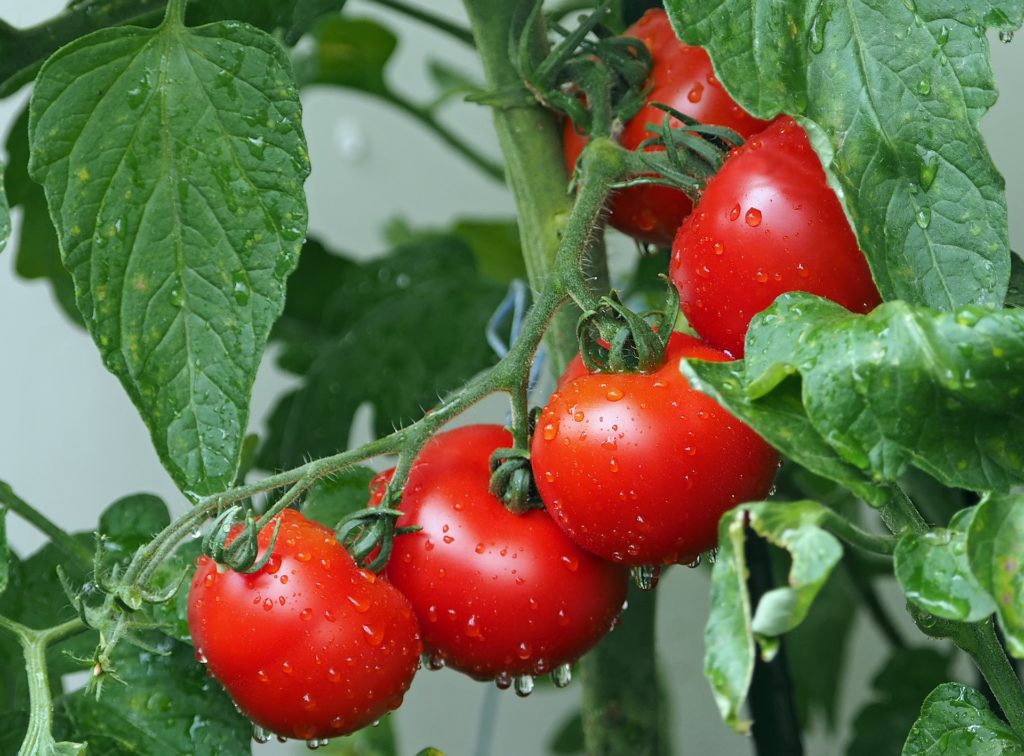
Weeds may steal the beauty of your yard, and chemical-based weed killers may harm the entire ecosystem. A few people might feel torn between using a weedkiller that works and one that’s not toxic to the environment. But you can have both with Sierra Natural Science’s products!
You can find some excellent environmentally friendly weed killers on the market. Ones that take care of your weed problem without causing collateral damage. Don’t worry, you can get the yard of your dreams without chemicals and for an affordable price, too. We feel that the SNS Weedrot line of weed killers is the best choice.
Now that you’re well informed on pesticides, it’s up to you to help make the right choices that’ll bring you, your friends, and your loved ones a healthier lifestyle. Take a closer look at each of our organic weed control solutions and choose the ones that are most suitable for your needs. Get rid of unwanted weeds the thoughtful way with Sierra Natural Science!

